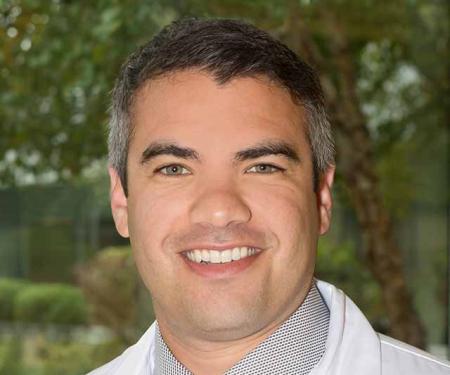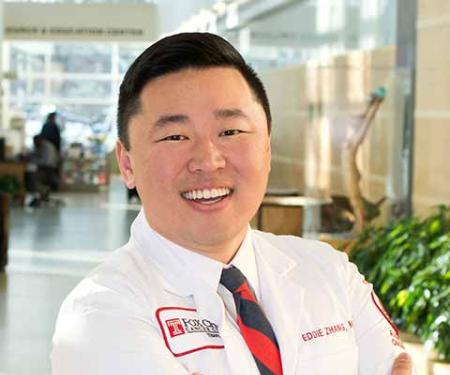Fox Chase Cancer Center has a history of excellence in research. Fox Chase investigators have received honors, including Nobel Prizes in medicine and chemistry; the Kyoto Prize; a Lasker Clinical Research Award; memberships in the national Academy of Sciences; General Motors Cancer Research Foundation Prizes; American Cancer Society Medals of Honor; and induction into the National Inventors Hall of Fame.
Fox Chase is ranked as the third most productive residency program in the country with respect to first author publications per resident. The residents are supported by departmental faculty who are committed to research; collectively, the faculty at Fox Chase have the second highest mean h-index in the country. To continue the outstanding research experience, twelve months of dedicated research time is provided during PGY-4 (among the highest of any residency in the country); additionally, one academic day per week is available on clinical services during the other academic years. The extensive amount of designated research time has been shown to be the sole independent predictor of research productivity.
During their training, residents routinely present their papers at the American Society for Therapeutic Radiation Oncology (ASTRO). Additionally, residents typically present their research at major national meetings, including the American Society of Clinical Oncology (ASCO), the American Brachytherapy Society (ABS), the American Radium Society, the Lynn Sage Breast Cancer Symposium, ASCO GU, ASCO Head & Neck, and the American Association for Cancer Research meeting.
Clinical and Translational Research
Residents have full access to world-renowned Fox Chase databases (e.g. prostate cancer and breast cancer). The prostate database, for example, has been instrumental in the design of clinical trials on dose escalation and hypofractionation. Database managers maintain the Fox Chase databases, allowing more time for residents to focus on analysis, interpretation and synthesis of data for publication. Additionally, residents perform high-impact retrospective studies and have access to the National Cancer Database (including various disease sites); and Surveillance, Epidemiology and End Results database. Outside of our department, residents regularly collaborate with colleagues in surgical and medical oncology for other research projects.
Collaborative translational laboratory-based radiation research is led by Dr. Joshua Meyer as Vice Chair of Translational Research in the Department of Radiation Oncology. The Chief Academic Officer, Dr. Glenn Rall, is available to discuss opportunities for residents to work in any of the >50 research laboratories on campus, and further provides support for grant and paper writing, seminar preparation and delivery, and bioinformatics/ biostatistics.
Residents receive didactic training in research methods and statistical analysis through a multidisciplinary course, the Clinical Research/Clinical Trials Course Curriculum for the Graduate Trainees at Fox Chase. The introductory portion of the course required of all trainees, including residents, fellows, and graduate students. After completing the core lecture series, interested residents are encouraged to participate in additional small-group sessions that provide mentorship related to grant writing and clinical trial design. After completion of the supplemental series, trainees will be prepared to submit a grant, IRB proposal, or manuscript.
Basic Science Research
The Institute for Cancer Research at Fox Chase has been in operation since 1948 and ranks among the elite Comprehensive Cancer Centers in the nation. It has an illustrious history of scientific achievement, including the production of the first chimeric mice and two Nobel Prizes for identification of the Hepatitis virus as the causative agent of hepatitis and ubiquitin-mediated proteolysis, respectively. Fox Chase possesses a large (>40 principal investigators) and distinguished faculty, who will provide experience and expertise. Additionally, Fox Chase science infrastructure includes 22 outstanding Cancer Center Support Grant core facilities that provide a wide range of service, including transgenic mouse construction, high-throughput Illumina sequencing and mass spectroscopy.

